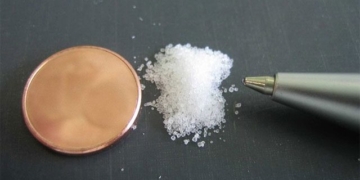Canadian researchers have found that babies whose mothers consume more milk weigh more than those whose mothers do not drink milk during pregnancy.
 |
(Image: weight-loss-health) |
The research team claims that the consumption of vitamin D and milk is linked to the birth weight of newborns. Each additional glass of milk increases a baby’s weight by 41 grams, while an extra microgram of vitamin D contributes an additional 11 grams to the baby’s weight.
Vitamin D is well-known for its numerous health benefits for infants. Studies have shown that mothers with adequate vitamin D levels tend to have babies with stronger bones.
Many pregnant women today avoid drinking milk to prevent issues such as lactose intolerance, stomach discomfort, and other complications for the child, including diabetes and allergies.
“There is no strong enough reason for pregnant mothers to give up drinking milk, except for a small number of women with clear issues,” said Kristine Koski, co-author of the study at McGill University in Montreal.
Koski and her research team interviewed 279 healthy mothers aged 19 to 45, of whom 207 consumed milk during pregnancy, while 72 did not. Those who drank less than 250 ml were considered non-drinkers of milk. Participants answered questions about their daily dietary habits, including milk consumption and vitamin D supplementation. Blood samples were collected to measure the vitamin D levels in mothers. The results showed that babies born to mothers who drank milk weighed slightly more than those born to mothers who did not.
M.T.




















































